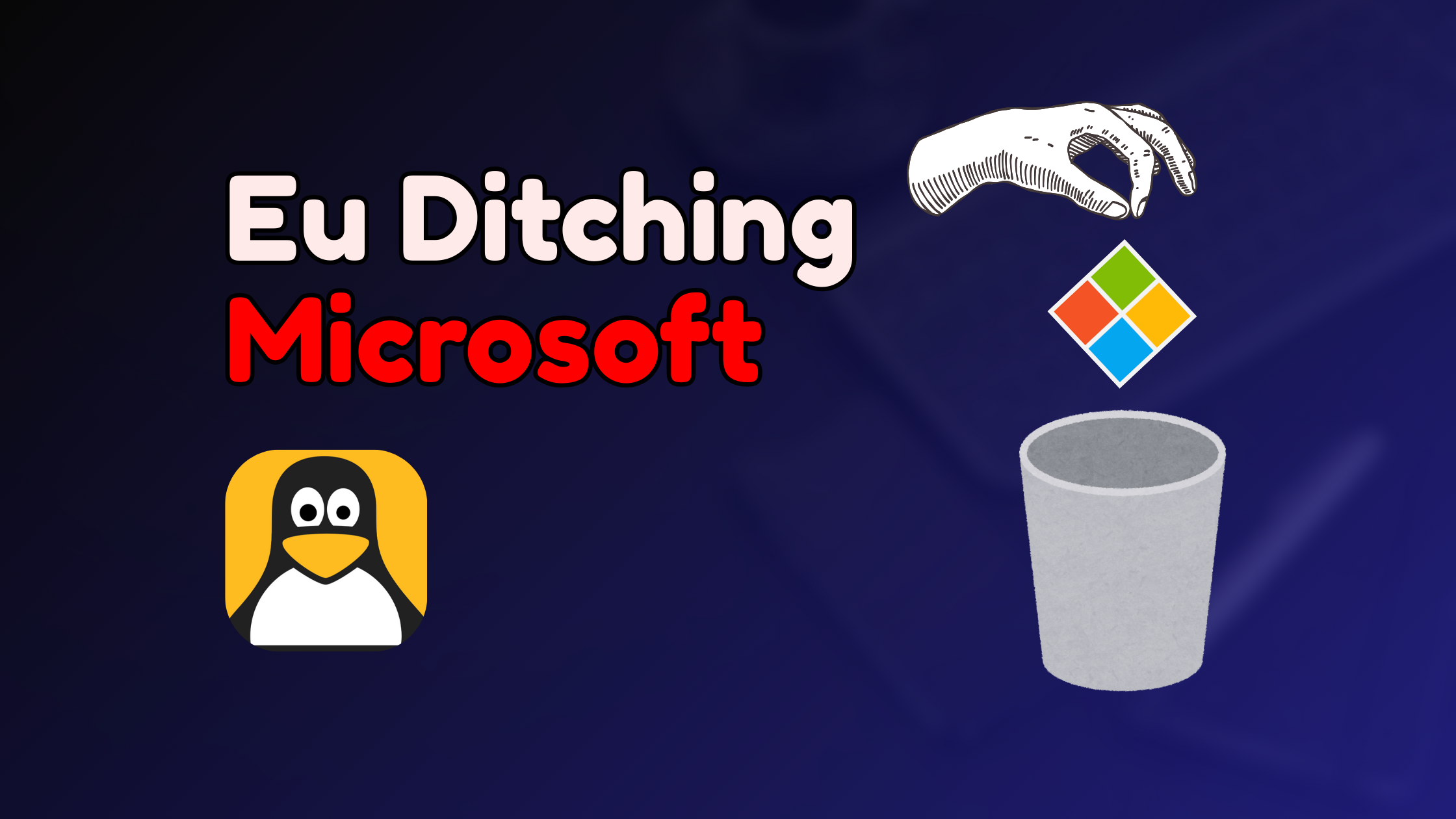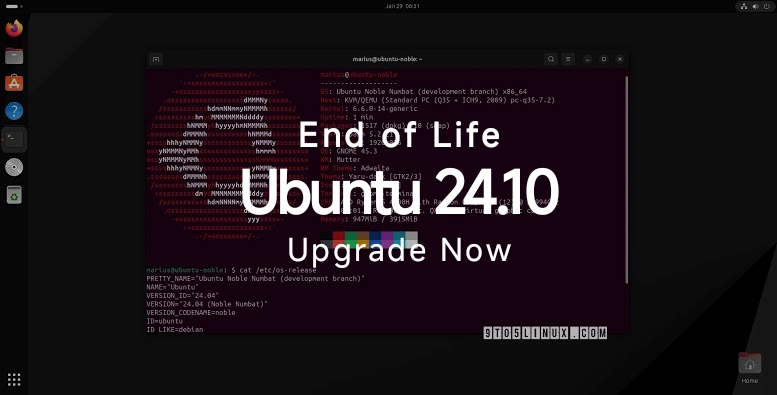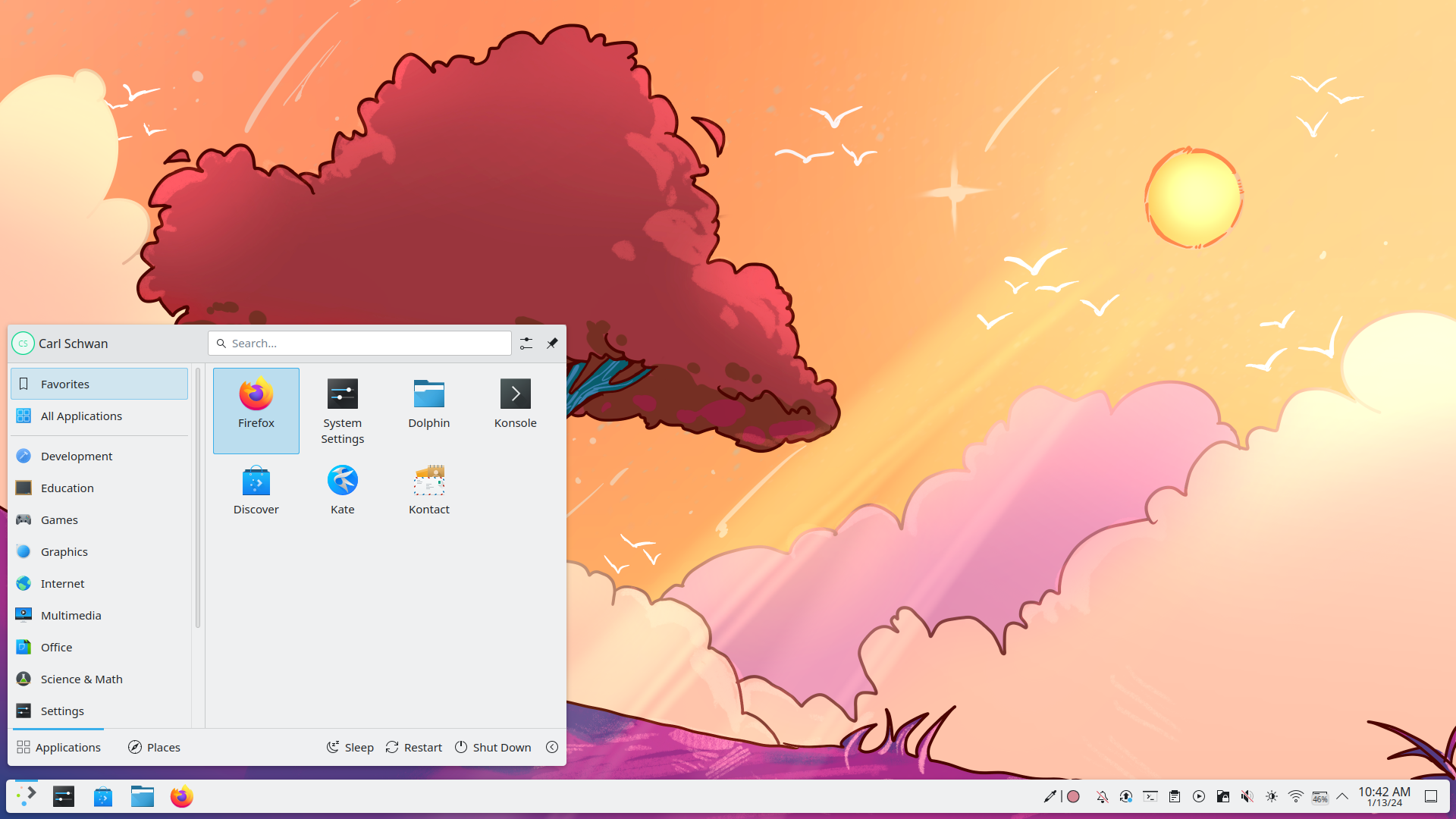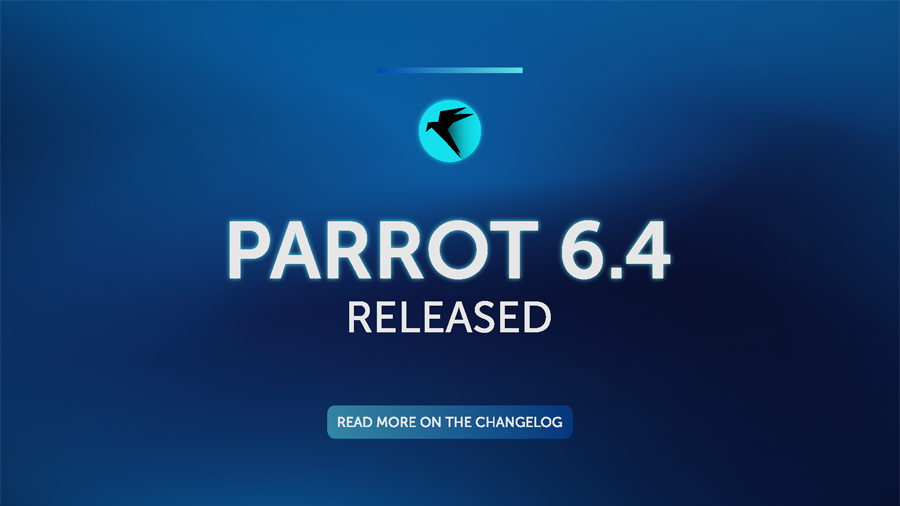· linux · 4 min read
EU’s Push to Ditch Microsoft: A Boost for Linux or a Risky Gamble?

A growing trend in the European Union is pushing for technological independence by phasing out Microsoft products in favor of Linux and open-source solutions. Driven by geopolitical tensions and a desire for digital sovereignty, municipalities, federal states, and organizations across the EU are transitioning to open-source software. While this shift could significantly boost Linux and open-source adoption, it also faces challenges that could lead to failure. Here’s an in-depth look at what’s happening, why it matters, and the risks involved.
The EU’s Move Away from Microsoft
In Germany, Schleswig-Holstein is leading the charge, transitioning 30,000 government computers from Windows and Microsoft Office to Linux and LibreOffice. The state is also replacing Microsoft Teams with open-source alternatives, aiming to be as Microsoft-free as possible. This move builds on a long-standing effort to embrace open source, with implementation now in full swing.
In Denmark, initial reports suggested a full shift to Linux, but the Ministry of Digital Technology clarified it is only replacing Microsoft Office with LibreOffice for now. Linux adoption may follow in the future. In France, the city of Lyon is moving to OnlyOffice instead of Microsoft Office and is considering replacing Windows with Linux. The French Gendarmerie, a military police force, already uses a customized version of Ubuntu called “GendBuntu,” with some members even adopting it for personal use.
However, not all transitions have succeeded. In 2003, Munich moved 14,000 PCs to a custom Linux distribution, LiMux, but reverted to Microsoft a decade later due to high maintenance costs. This precedent raises questions about the sustainability of the current wave of transitions.
Why the EU Is Making This Shift
The push to ditch Microsoft stems from two primary factors: digital sovereignty and cost. Geopolitical tensions between the EU and the US have highlighted the risks of relying on American tech giants. If the US were to restrict access to Microsoft services, EU governments and organizations could face a technological crisis. With no major proprietary tech companies in the EU to rival Microsoft, Google, or Apple, open-source solutions like Linux, LibreOffice, OnlyOffice, Nextcloud, and Jitsi Meet are the most viable alternatives. These tools allow the EU to maintain control over its software stack, ensuring digital sovereignty.
Cost is another driving force. Microsoft’s licensing fees and support costs have risen significantly, making open-source solutions appear more cost-effective. However, transitioning to open source isn’t free. It requires significant investment in analysis, deployment, maintenance, and training. Past failures, like Munich’s, show that these costs can outweigh short-term savings, especially without a turnkey solution provider.
Why This Could Benefit Linux and Open Source
A successful shift to open source in the EU could have far-reaching benefits. First, it would reduce reliance on a handful of US tech giants, fostering technological diversity and reducing the risks of a single point of failure. Open-source software is inherently collaborative and customizable, allowing governments to tailor solutions to their needs. If EU countries invest in open-source development, they could fund features for projects like LibreOffice or Linux, benefiting the global open-source community.
Moreover, widespread adoption in government and education could normalize open-source tools. Students trained on Linux or LibreOffice in schools would likely demand these tools in the workplace, creating a ripple effect that could challenge Microsoft’s dominance. This grassroots adoption could make open source a standard in both public and private sectors.
Why It Could Fail
Despite the potential, the transition faces significant hurdles. The high initial costs of switching to open source—training staff, maintaining systems, and finding replacements for proprietary tools—can deter governments and organizations. Munich’s return to Microsoft after a decade on Linux highlights the financial and logistical challenges.
There’s also the risk of external pressures. Improved EU-US relations or financial incentives from Microsoft could halt these initiatives. Allegations that Microsoft influenced Munich’s decision to revert to Windows, while unproven, underscore the tech giant’s ability to sway decisions. Without a coordinated EU-wide strategy, these efforts remain fragmented, making them vulnerable to failure.
A Critical Moment for Open Source
The current push comes at an opportune time. Linux, LibreOffice, and OnlyOffice are more mature and user-friendly than they were a decade ago, capable of meeting most users’ needs. Microsoft’s rising costs and controversial moves, like pushing Windows 11 upgrades that render older hardware obsolete, make open source an attractive alternative. However, success depends on sustained commitment, adequate funding, and robust support systems.
If the EU can overcome these challenges, this shift could be a game-changer for Linux and open source, reducing tech hegemony and empowering communities worldwide. If it fails, it risks being another cautionary tale of ambitious but unsustainable transitions. Only time will tell whether this momentum will reshape the EU’s technological landscape or fizzle out.
News Feed
Get the Hottest Cybersecurity News Delivered to You!
Thank you!
You have successfully joined our subscriber list.





